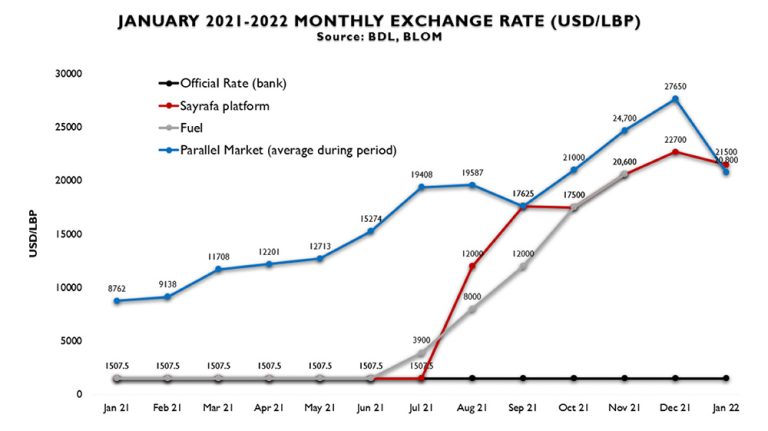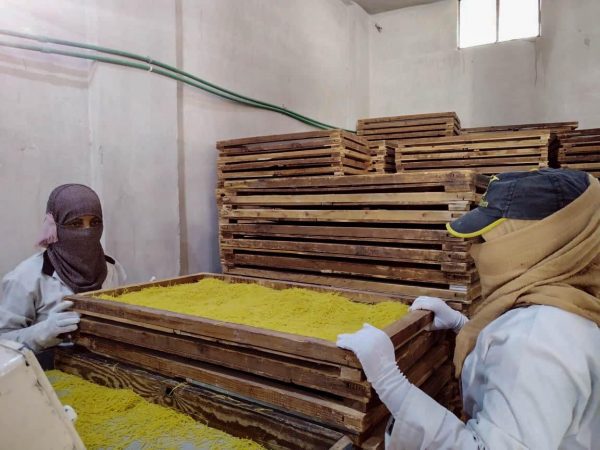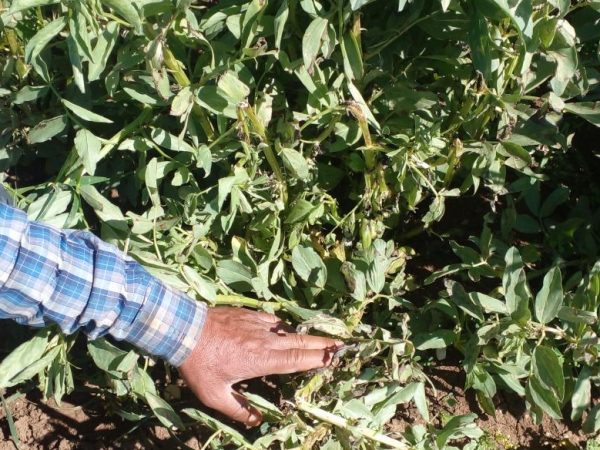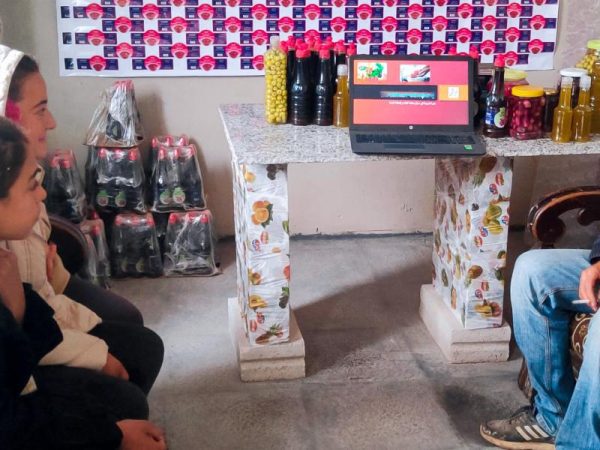USAID Middle East Economic Growth Best Practices Project (USAID/MEG)
USAID Middle East Economic Growth Best Practices Project (USAID/MEG)
2017 - 2023
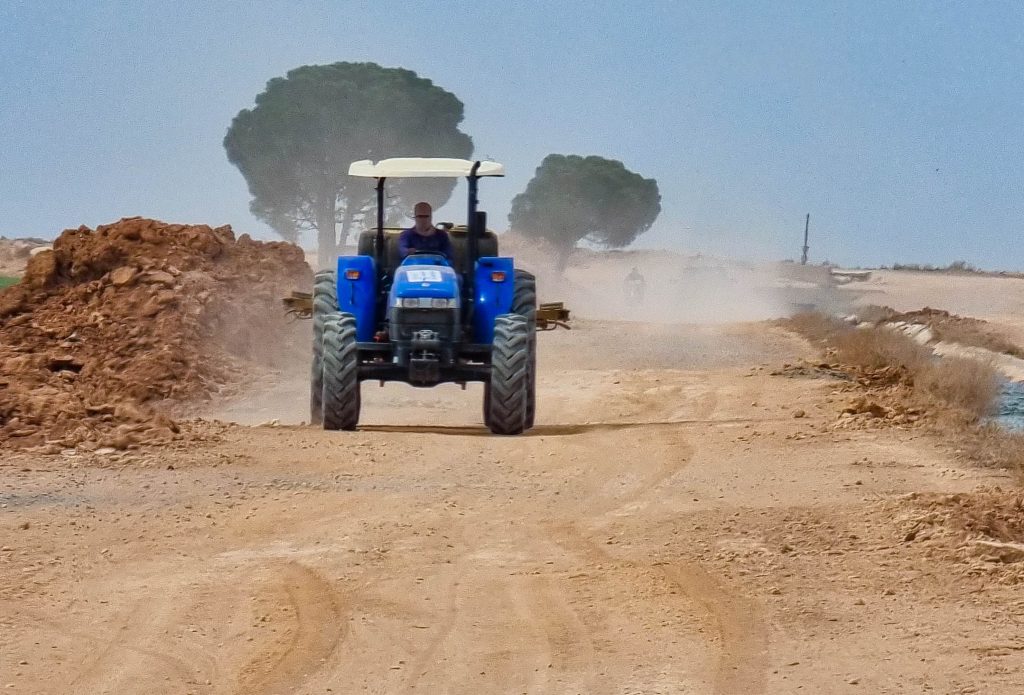 USAID’s Middle East Economic Growth and Best Practices Project (USAID/MEG) is a vehicle through which Pragma provides USAID’s Middle East Bureau, Missions, and Operating Units with customized services and quick turnaround solutions to advance economic growth and reform across the Middle East and North Africa.
By implementing pilot programs and providing comprehensive knowledge management services, Pragma develops, applies, and evaluates best practices to stabilize post-Arab Spring economies. In the process, we help public and private stakeholders to drive growth, create jobs, and leverage investments.
USAID’s Middle East Economic Growth and Best Practices Project (USAID/MEG) is a vehicle through which Pragma provides USAID’s Middle East Bureau, Missions, and Operating Units with customized services and quick turnaround solutions to advance economic growth and reform across the Middle East and North Africa.
By implementing pilot programs and providing comprehensive knowledge management services, Pragma develops, applies, and evaluates best practices to stabilize post-Arab Spring economies. In the process, we help public and private stakeholders to drive growth, create jobs, and leverage investments. USAID MEG/Economic Management for Stability in Northeast Syria (EMS) Pilot
(2020 – 2023)
Overview
Through key macro and micro-level economic governance and growth strategies, this pilot program is helping to implement measures for improving the lives of the people of Northeast Syria. Activities are promoting economic stability through sound economic governance strategies that also are aimed at stimulating private sector growth and reducing government corruption.
We also are addressing reforms to the business enabling environment and agricultural policies to strengthen food security and lessen dependence on imported goods. Through formal partnerships, we are helping companies in high-growth sectors to become more competitive and resilient, localizing greater employment and brighter prospects for both men and women of the region.
Achievements
- Developed the legal framework and facilitated the establishment of the Central Monetary and Payments Office (CMPO), an independent institution mandated to oversee core payment, related fiscal agency, financial licensing and reporting, and compliance-oversight activities in the AANES commercial finance system.
- Created policy/regulatory reforms for trade/customs, consumer protection, and the commercial code that streamline processes, overcome distortive regimes, and greatly enhance the business enabling environment
- Bolstered the productivity, quality, and efficiency of local manufacturing companies to replace dependency on imported products for basics, such as food, clean water, building material, and garments
- Guided design of dollarization-based economic stabilization strategy
- Developed and executed 75 Partnership Agreements with small/medium-sized business in the region
- Generated more than 1600 full-time jobs—one third of them held by women
- Total annual sales of the first 30 partners increased from $24 million to $70 million
- With focus on agro-industries, increased productivity and climate resilience of local food systems for greater food security in the short and longer terms
- Strengthened women’s employment and women-owned businesses
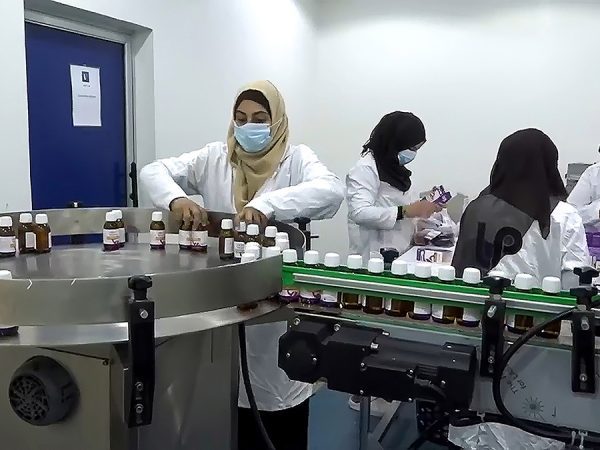
Success Stories
USAID MEG/Yemen Economic Stability and Success (USAID YESS) Pilot
(2018 – 2020)
Overview
USAID YESS was an 18-month pilot program for advancing best practices for stabilizing Yemen’s economy by facilitating trade, increasing employment, supporting sustainable livelihoods, and promoting macro-fiscal reforms with the Central Bank and Ministry of Finance. The program leveraged private and public sector partnerships to spur economic growth and reforms, build greater resilience among small-scale farmers and entrepreneurs, and enhance the country’s capacity to respond to the COVID-19 crisis. It’s successful approaches and best practices were expanded to create the Economic Recovery and Livelihoods Program (ERLP), also implemented by Pragma.
Achievements
- Created 3,000+ jobs through partnerships with 100+ small and medium enterprises (SMEs)
- Leveraged $21 million in loans for SMEs
- Reduced average import transit times from five to two days, lowered numbers of containers needing inspection lowered from 100 to 65 percent, and increased imports of critical food, fuel, and humanitarian aid by 20 percent
- Trained 8,600 farmers/fishermen (24 percent of them women) across 11 governorates to improve productivity and business skills, boosting household incomes by 124 percent
- Established 450+ new business linkages between small producers/fishing businesses and more lucrative buyers
- Initiated path-breaking efforts to rebuild monetary policy, foreign exchange management, and payments system operations at the Central Bank of Yemen
- Specialized technical and on-the-job-training offered to Ministry of Finance staff to articulate best practice budgetary planning, allocation, standards, and principles
- Trained 100 new nurses and upgraded skills of over 400 working medical staff in COVID-19 related techniques before September 2020
- Expanded business response to increased demand for products to enhance COVID pandemic response

USAID MEG/Libya Economic Stabilization Program (USAID LESP) – Pilot Project
(2017 – 2019)
Overview
This pilot program partnered with public and private sectors to grow the Libyan economy, and in turn advance efforts to counter violent extremism. USAID LESP provided technical assistance and capacity building to support stronger public financial management and deliver more reliable electricity services for Libyans. The project also partnered with small/medium-sized businesses in high-potential sectors to catalyze sales growth, improve their access to finance, and create permanent employment opportunities for young Libyans. The pilot successfully laid the groundwork for the Libya Public Financial Management Program (LPFM), also being implemented by Pragma.
Achievements
- Established Libya’s first Macro-Fiscal Unit to improve fiscal planning across all levels of the Libyan government
- Streamlined and improved business practices within the General Electricity Company of Libya to stem financial losses, including millions of dollars in lost revenues
- Set in motion reforms to modernize Libya’s electricity sector and open it to private sector participation/innovations, and to create an energy efficiency action plan for Libya to reduce unsustainable demand
- Assisted 24 municipalities with financial action plans to improve the delivery of essential public services
- Partnered with more than 40 Libyan SMEs to increase productivity and generate over 1,400 sustainable jobs in high-potential sectors

USAID MEG/American Chamber of Commerce of Jordan: Capacity Building for the Post-COVID-19 Environment – Mini Pilot Project
(2020 – 2022)
Overview
For this “mini” pilot project, Pragma provided technical assistance to the American Chamber of Commerce in Jordan (AmCham-Jordan) to help it respond more directly to member needs following the Covid pandemic disruptions and make it financially self-sufficient. Our support restructured AmCham, enhancing its business model and ability to deliver more effective and better-targeted member services.
Achievements
- Reversed AmCham finances from being in arrears to becoming a financially sustainable company
- Paid memberships (main source of revenue) jumped to record highs
- Put in place new profit centers to further bolster revenues,
- Weaned AmCham completely from its dependence on donor funding to fulfill its mission

USAID MEG/Economic Recovery and Reform Support (USAID/MEG ERRS) – Special Projects
(2020 – 2022)
Overview
USAID Economic Recovery and Reform Support (USAID/MEG ERRS) special projects provided quick-acting, on-demand support activities to address priority USAID economic growth issues in the Middle East and North Africa. Topics ranged from financial/banking sector reforms, agricultural planning, and assessments of designated economic zones to facilitating public/private partnerships, post-COVID-19 policy responses, and more.
Jordan
Created a More Business-enabling Environment: Helped develop a pathbreaking and comprehensive legal regime for investment and business operations with the Ministry of Planning and International Cooperation that is more conducive to new business creation and investments.
Supported Public/Private Collaboration: Collaborated with the Government of Jordan’s Ministry of Planning and International Cooperation to devise institutional reforms that brought in private sector innovations and efficiencies to address public service needs.
Initiated Development of a Joint Economic Zone with Iraq: Conducted a pre-feasibility study, in collaboration with Jordan’s Ministry of Industry, Trade, and Supply, regarding the establishment of a Joint Economic Zone between Jordan and Iraq to bolster economic cooperation and increase exports to Iraq.
Developed a 5-year Sustainable Agricultural Sector Business Sector Plan: Developed a five-year sustainable business plan aimed at strengthening the benefits of Jordan’s agricultural sector, which generates nearly 30 percent of GDP through productivity and related commercial/industrial activities.
Developed Capital Investment Plan Catered to the Rising Demand for Meat: After conducting a feasibility study regarding the establishment of the country’s first state-of-the-art slaughterhouse for sheep and cattle, Pragma developed a detailed capital investment plan, including an operational plan covering sustainable infrastructure, value-added services, an environmental and social impact assessment, as well as a legal and regulatory analysis.
Lebanon
USAID MEG Financial Atmospheric Dashboard and Reporting System (USAID/MEG ERRS) Pragma created this very popular tool for the US Mission in Beirut to track key economic and trade data/trends to better design interventions for confronting the economic challenges facing Lebanon and its people.
USAID MEG Port of Beirut Impact Study (USAID/MEG ERSS) Following the disastrous 2020 explosion, USAID commissioned Pragma to assess near-term measures needed to resume port operations and longer-term reforms for facilitating trade and Port of Beirut operations. A quick turnaround report laid out needed reforms to professionalize the port’s administration, expand its use, increase port throughput reduce delays/cost, and fight corruption.
Multi-Country
- USAID MEG Digital Financial Services (USAID/MEG ERRS). A special request from USAID/Middle East Bureau in Washington, this study analyzed existing and potential digital payment applications in select countries to increase financial inclusion and innovation—particularly among women, youth, and aspiring entrepreneurs. Recommendations addressed the digital ecosystem of each country, including Iraq, Libya, Morocco, and the West Bank/Gaza.
- USAID MEG COVID-19 Impact Study (2022) (USAID/MEG ERRS). This study analyzed the impacts of COVID-19 on the economies of Egypt, Iraq, Jordan, Libya, Yemen, Lebanon, Morocco, Tunisia, and the West Bank/Gaza. The analyses considered regional policy responses and focused on critical considerations distinguishing low-income, conflict-prone countries from their more stable, middle-income neighbors. Findings informed a menu of short- and medium-term options for fiscal policy, labor market adjustments, private sector recovery, and trade facilitation.
- Access to Finance Toolkit: Based on comprehensive analyses of regional and global programs, this toolkit is crafted to assist mission management and program officers in designing and implementing the next generation of USAID Access to Finance programs for small and medium sized enterprises in MENA. The toolkit addresses supply and demand-side constraints to SMEs lending, and it describes how to create the legal and lending environment for business growth. It presents practical models for developing flexible investment finance structures and risk-sharing including the use of FinTech and digital financial services.
- Countering Rival State Influences: The MENA region is at the center of competing foreign interests and power dynamics. Our studies explored anticipated competitive policy approaches by China, Russia, and Iran, and their potential to distort markets, violate international rules of the game, or hinder trade relationships. The studies provided key steps for countering these risks and fostering self-reliance in MENA countries through government, civil society, and private sector development support.
- Enterprise Competitiveness Toolkit: Small and medium sized enterprises in the MENA region face key constraints that hinder their competitiveness and job growth potential. Our toolkit offers a model approach, with practical steps informed by demonstrated best practices for creating programs that can lead to sustainable private-sector growth and job creation in MENA countries. Tools cover pre-program diagnoses, program design, and project implementation – including the interdependent and mutually reinforcing factors that drive program success.
- Expanding Private Sector Engagement (PSE) in the Middle East: In the wake of the pandemic, ensuring equal access to quality education has become an even greater challenge globally. Pragma conducted an analysis of education provision across the Middle East, North Africa, Lebanon, and Morocco, revealing existing and heightened needs and challenges exacerbated by COVID-19. Our experts identified innovative solutions and funding mechanisms, urging the collaboration of the private sector and other stakeholders to support both immediate and long-term innovation and implementation. The findings and proposals were presented to USAID, aiming to address the gaps in education delivery and promote equitable learning opportunities
- Foreign Investment Toolkit: Our experts have explored the strategic constraints to foreign investments that arise from the regulatory regimes of selected MENA countries, and developed viable approaches to mitigate them based on best practices. We have translated the findings into tools that are both cutting-edge and easy to apply. With timelines, templates, samples, guidance, a decision tree, and more, the toolkit walks users through the steps to implement interventions and partnerships aimed at attracting foreign investment and spurring economic growth, trade, diversification, and structural transformation.
- Monitoring and Evaluation Toolkit: How can programs develop best-practice compliant Monitoring, Evaluation, and Learning (MEL)frameworks for improving the impacts of their enterprise-competitiveness and employment generation activities in MENA? Our experts have developed a practical toolkit that links MEL tools and processes to the best model diagnostics and program design/implementation tools presented in our Enterprise Competitiveness Programing toolkit for seamless program planning. Practical modules take users through critical elements of MEL design, indicators, implementation, and application of MEL findings.
- Prompting a Reliable and Efficient Electricity Supply: Power outages and inefficiencies severely constrain economic development and foster public frustration. Our analyses and case studies shed light on the conditions affecting power services – at the regional, national, and utility levels. We assessed ways to reform the sector, restructure priorities, and leverage investments to create more reliable, efficient power networks at the national level and across the MENA region.
- Trade Facilitation Toolkit: We offer a diagnostic and planning toolkit designed to aid countries in conforming with seven key World Trade Organization (WTO) Trade Facilitation Agreement (TFA) articles and provisions. They are central to facilitating trade by increasing transparency, public-private collaboration, and border agency cooperation. The toolkit offers an action planning framework, along with example action plans and an extensive supporting knowledge library of materials. It is specifically designed for programming in the MENA region and based on an extensive review of degrees of conformity to the TFA articles and provisions in Egypt, Iraq, Jordan, Lebanon, Libya, Morocco, Tunisia, and Yemen.
- Workforce Development Toolkit: Our analyses of workforce development programs in MENA and other countries have identified the approaches best suited for addressing the high unemployment and endemic labor market demand/supply mismatches found across the region. Our toolkit goes through the nuts and bolts of best practice requirements for USAID workforce development programs, including the central importance of demand-driven strategies and need for flexibility to adjust to evolving labor market conditions.

